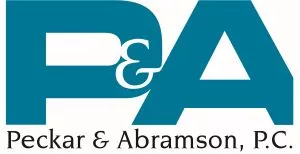I have seen my fair share of disputes over partnerships, closely held corporations or limited liability companies. Some disputes arise from a fundamental misunderstanding over a particular person even being a partner, shareholder or LLC member. The typical scenario is when family members or friends (two or more people) help to build a business from scratch. However, they put off the day when they have to negotiate the terms of a stockholder's, partnership or LLC agreement. Another scenario is the blurred lines about the exact relationship between an outside source of much-needed capital and the business. There is not time to clearly define the relationship due to the exigencies of the emergency capital infusion. Both of these scenarios can create an "accidental" partner, shareholder or member.
What happens when a demand gets made for a share of profits and the issue of ownership becomes hotly disputed? There are often two sides to the story. I've seen situations where a company will claim that an employee never had equity rights in the company's stock. Yet that same employer created company records, company advertising literature, social media posts, etc., stating the opposite. From the perspective of the company and its shareholders, this employee has no ownership rights. On the other hand, the employee feels entitled to a share of the profits. The Court, stuck in the middle, has the task of figuring out who is right and who is wrong.
Common Misperceptions – Party Claiming Ownership Interest Has No Rights When
- The company does not issue stock.
- Or, the company does not formally issue a new member certificate to an LLC member.
- Or, you never sign an operating agreement.
These assumptions are fundamentally incorrect. There are several doctrines that have developed in the law over the years to protect people who have been promised an interest in a partnership, corporation or LLC, and have relied on those promises to their detriment, even where the company never formally issued a stock certificate or LLC member certificate. These cases can, in some instances, wind up being more expensive to litigate because, very often, the question of whether such an interest exists may be left for the "trier of fact."
It is key to properly document the relationship between employees and the company or partnership. It is equally key to document the relationship with funding sources. Documentation will help avoid an "accidental" partner, shareholder or member.
The content of this article is intended to provide a general guide to the subject matter. Specialist advice should be sought about your specific circumstances.

